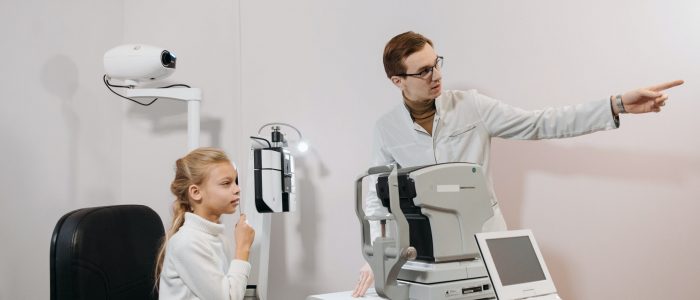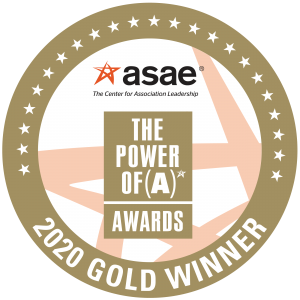

How to Write – A Killer Personal Statement Optometry Example
The Personal Statement Optometry Edition
The personal statement for Optometry plays a significant role in the application process for many universities. They provide the admissions team with information on your academia, work experience, and personality, to help them determine whether you’re a good fit for their program.
Personal Statement Format - Optometry
A structured and well-written personal statement will highlight your strengths and demonstrate your transferable skillset. You should include your educational background, work history, volunteering, extracurriculars, hobbies, and aspirations (whether you want to stay in primary care, work in a hospital, or create your own business). If you’ve taken courses related to optometry, be sure to mention those too.
If you’re not too sure what to write about, ask yourself these questions:
What do I hope to accomplish by applying to optometry?
How have my experiences prepared me for university?
Why should they choose me?
This guide has you covered with keywords, bonus tips, and a successful personal statement optometry example.
If you’re applying through UCAS, then you’re limited to 4000 characters (including spaces) and up to 47 lines. Check your length by pasting your draft here , you may need to remove the spaces between paragraphs- this is normal and you will not be penalised for that.
Table of Contents
- Step 1 – Scope of Practice
- Step 2 – Keywords
- Step 3 – Mentor/Editing Service
- Killer Personal Statement Optometry Example
- Overview of the statement

Step 1: Understand an Optometrist's Scope of Practice
An optometrist’s Scope of Practice simply means what their roles are, what they’re allowed to do, and day-to-day roles.
Roles – Research the difference between roles of dispensing opticians, optometrists, ophthalmologists, and
– this will show off your background research and understanding.
If you have shadowed an optometrist, mention their roles in educating, advocating, and treating patients. This isn’t somewhere to list roles but suggests how you hope to make a difference through these roles.
Standards of Practice – Look into the General Optical Council Standards – These are 19 standards each optical professional must abide by. Integrate some of these in your personal statement optometry.
e.g., Standard 5: Keep your knowledge and skills up to date – Show your ability to research outside of your currciculum, mention an article, or research that you read. Show that you’re aware that learning extends beyond university!

Step 2: Keywords
- Collaboration- an ability to work closely with others
- Educator- willingness to teach others, educate patients on their vision health
- Advocate- care and support those with visual conditions, impairments & vulnerable patients
- Leader- handle the business side of optometry, manage a clinic, and mentor juniors
- Empathy- work with a diverse community, care for the young, elderly, those with disabilities etc…
- Communication- an ability to speak coherently, clearly, jargon-free, and alter your tone

Purchase the full guide with 3 successful examples, keywords, insider knowledge, top tips, full structure breakdown, and more...
Step 3: mentor/editing service.
Find a Mentor
Most applicants resort to their career adviser for help with their optometry personal statement. Make sure your career adviser has a track record of successful students who have previously applied and helped with a personal statement optometry application.
Optometry is a unique field, focusing on the eyes and a part of healthcare. It’s competitive, meaning you want to use each paragraph to add value rather than repeating what’s already on your UCAS application.
The universities will have your academic records, predicted grades, and final results- so they know you’re hard working and can handle the workload. They want to know how you are as a person, your work experience, knowledge beyond the A Level curriculum, and evidence of your caring nature.
Professional Mentor – a personal statement editor or advisor is someone who helps applicants for a living. They should have had experience with optometry and the application process. My services include editing, rewriting, content addition or budget services which include proofreading, review, and grammar corrections .
Optometrist – if you’ve shadowed an optometrist you might be able to ask them to read through your personal statement for optometry. They can highlight any technical errors or fact-check to make sure the content is correct

Personal Statement Optometry Example
“As an avid photographer, I grew passionate about learning the different camera lenses, apertures, and their impact on focus. This intertwined with my anatomical interests, which stemmed from biology, where I dissected an eye. Visualising the ciliary muscles and learning their function alongside the zonular fibres helped me to understand their function on the lens. A simple contraction causes tension enabling us to focus on near objects. This significant but small muscle carries out an essential function, if impaired, our vision would be hugely affected. Researching this inspired me to understand ocular anatomy and age-related conditions. My research and the dissection tutorial sparked my fascination for vision health. As a teenager, I was always drawn to healthcare, but I was now drawn to this fascinating sector of healthcare. Following my research on age-related conditions, I came across cataracts which are prevalent within the geriatric population. I oversaw the impact cataracts had on elderly patients while volunteering weekly at a residential home. Many residents lacked independence due to their visual impairments and mobility issues. I recognised that many required visual aids, glasses, or regular medication and appointments. To understand the impact this had on their quality of life, I spoke to many who were happy to share their stories. I empathised with their struggles and understood how vision is essential. I also learned how residents coped with their deteriorating vision by improving their room lighting, colour-coded medication, and asking for help. I was able to help with tasks like clipping nails, meal times, and cleaning. I found the team to be very helpful, and we worked closely to make sure everyone was cared for. This work was undoubtedly rewarding, but it made me wonder how those in developing countries or of a lower income are able to access or afford such care. This made me grateful for the cataract surgeries and extensive care the NHS provides for all ages. I hope to use this experience to understand my future patients and educate them on coping methods while they await surgery. I found myself using a more gentle and slower speech when communicating with elderly patients; some suffered from hearing issues and additionally required me to write things down or speak facing them while accentuating my words. I now bear this in mind and am more patient and empathetic toward others. To understand what optometry entails, I shadowed my optometrist for two weeks. I oversaw consultations, eye health checks, diabetic checks, and the use of OCT scans. Being eager to learn, I curiously asked the optometrist to explain the purpose behind each check. I’m grateful that she was kind enough to explain the procedures and the various conditions that can arise. We spoke about retinal detachment, symptoms, and the risk of sudden vision loss. I recognised how crucial it is to care for those in the chair, whether it be elderly patients or those with limited English. Each required a thorough check and an explanation that they could understand. In order to gain a comprehensive experience, I learned about the administrative side of optometry, what is involved in running a clinic, and ensuring referrals are followed up. I had a chance to respond to phone calls and book appointments. This improved my communication skills and ability to empathise with those who were distressed by their symptoms, I could relate as I had recently suffered from allergies, which caused a great deal of irritation and itchiness. Overall, I believe my shadowing, rooted interests in anatomy, and willingness to work in a patient-centred profession have drawn me to optometry. I, therefore, wish to learn, develop, and treat those who are in my care by providing a quality service that will continue beyond university.”
Remember- Scope of Practice, use keywords, and get help with your Personal Statement Optometry
Sentence structure, flow, spelling, and grammar are equally important. Without flow and good transitional sentences, it becomes difficult to read, losing the admission tutor’s interest.
Therefore, I strongly advise getting professional help with the draft once it is written. Invest in your future now to maximise your chances of getting into your dream 0ptometry course.
Get help from an experienced writer Volunteering in your local area Top 3 Dental Personal Statements

- Personal Statement
- Personal Statement Examples
- Uncategorized
Input your search keywords and press Enter.
Become an Inspiring Future ODs Ambassador! LEARN MORE
- futureeyedoc.org
- ASCO Learning Center
- Optometry Admission Test
- Optometry Programs Admissions Directory
- Residency Programs
- ASCOConnect
- Meetings & Events
- Sponsorship Opportunities

Inside OptomCAS Part II: Your Personal Statement for Applying to Optometry School

In the previous post, we zoomed in on the Letters of Evaluation (LOEs) section of the application for optometry school, clarifying requirements and providing some pearls for effectively fulfilling them. This time we turn our attention to another crucial part of the application: the personal statement, a.k.a., the essay.
The LOEs and the personal statement [both of which you’ll manage through the Optometry Centralized Application Service (OptomCAS)] are relied upon heavily by the schools and colleges of optometry as they determine whether you’re the type of person who can succeed as a student in their programs and as a future optometrist. Your official instructions for composing the essay are as follows: “Please describe what inspires your decision for becoming an optometrist, including your preparation for training in this profession, your aptitude and motivation, the basis for your interest in optometry, and your future career goals. Your essay should be limited to 4500 characters.”
While the instructions have a kind of “just the facts,” flat quality, your essay will need to be the opposite of that in order to provide the admissions office with information they’ll notice and appreciate. According to Michael Bacigalupi, OD, MS, FAAO, Assistant Dean for Student Affairs & Admissions at Nova Southeastern University College of Optometry (NSU), “The personal statement allows me to get to know a student much better than just filling out blank spaces and checking off boxes on an application. It gives me a better sense of who the applicant is. Through the personal statement, students can convey what we’re looking for, which is motivation, dedication and a love of the profession of optometry. Those qualities aren’t measurable by OAT scores and GPAs.” By the way, Dr. Bacigalupi uses the word “love” of the profession on purpose. “I want students to be passionate about becoming an optometrist,” he says. “Like in any health profession, the rewards can be substantial, but the road to success is not easy, so you have to love it.”
Like some other schools and colleges of optometry, NSU requires applicants to submit an essay in addition to the personal statement. In fact, they ask for two supplemental essays. The two essay questions change from time to time, but for the last application cycle they were: 1) “What specifically are your reasons for choosing to apply to Nova Southeastern University College of Optometry?” and 2) “Professional school is very challenging. What experiences in your life and/or undergraduate career have prepared you for the rigors of optometry school?”
Dr. Bacigalupi says the statements and essays (he reads about 3,000 per year) that catch his attention are the ones that tell a story and talk about a crossroad or a serious decision an applicant made in life that led him or her to optometry as a career. He cites as an example, “Let’s say someone was an at-risk youth but realized that’s not the way he or she wanted to end up so instead took the right path and decided to focus on school. That’s a story that illustrates motivation.” He also recalls an essay from an applicant who had temporarily lost his vision, which led to the realization of how important sight is in daily life and the desire to help safeguard it for others. Don’t worry if your experiences aren’t as dramatic as those, Dr. Bacigalupi says, just be honest while providing insight into who you really are.
Essays that definitely don’t impress are those that seem to be quickly thrown together or are poorly crafted and contain spelling or grammar errors. “What comes across through those things is that the applicant rushed through this step without much care, which may indicate a lack of commitment or that this isn’t that important to him or her,” Dr. Bacigalupi explains. He recommends having another person or people, perhaps with no ties to optometry, read the personal statement with an eye toward content, grammar and readability before it’s submitted. “That gives you insight into whether it’s readable and will be effective,” he says.
Need more inspiration and ideas about what to write about in your personal statement? ASCO points out in its Optometry Career Guide that, in general, optometry schools are looking for students who can demonstrate strong academic commitment as well as exhibit the potential to excel in deductive reasoning, interpersonal communication and empathy. They like to attract well-rounded candidates who have achieved not only in the classroom but also in other areas, such as in leadership ability. A disposition to serve others and a work ethic characterized by dedication and persistence are other desirable qualities. Adds Dr. Bacigalupi, “We want to see in the statement and essays that we’d be admitting teachable students who ultimately will make good colleagues; therefore, the right balance of people skills and academic abilities is very important.”
The 2015-2016 OptomCAS application cycle opens on July 1, so the time to start working on your essay is right about now. Good luck!
Association of Schools and Colleges of Optometry
Postal address: 143 Rollins Ave #2046 Rockville, MD 20847
Tel: (301) 231-5944 Fax: (301) 770-1828 About ASCO / Contact Us

- Professional Development
- Faculty Directory
- Data & Reports
- Optometric Education Leadership Institute
- Committees, Task Forces, SIGs & Groups
- International Optometric Education
- Clinical Preceptors’ Toolkit
- ASCO Policy Guidelines & Reports
- Jobs / Careers
- Graduate Education and Research
- Career Opportunities for Doctors of Optometry in Academia
- Interprofessional Education and Collaborative Practice
- ASCO Inspiring Future ODs Ambassador Program
- Resources for Applicants and Advisors
- ASCO Member Schools and Colleges
- Associate Member Schools
- Speaker Series Sponsored by Johnson & Johnson Vision
- Diversity and Inclusion Resources
- Anti-Racism Compiled Resource List
- ASCO Cultural Competence
- Optometry Summer Programs
- Data & Surveys
- Resolutions
- Eye on Optometry Blog
- Additional Resources
- The Journal of Optometric Education
- ASCO Staff Contact Information
- Executive Committee and Board of Directors
- Strategic Plan
- ASCO Code of Ethics and Statement of Values
- Thank You Sponsors!

IMAGES
VIDEO